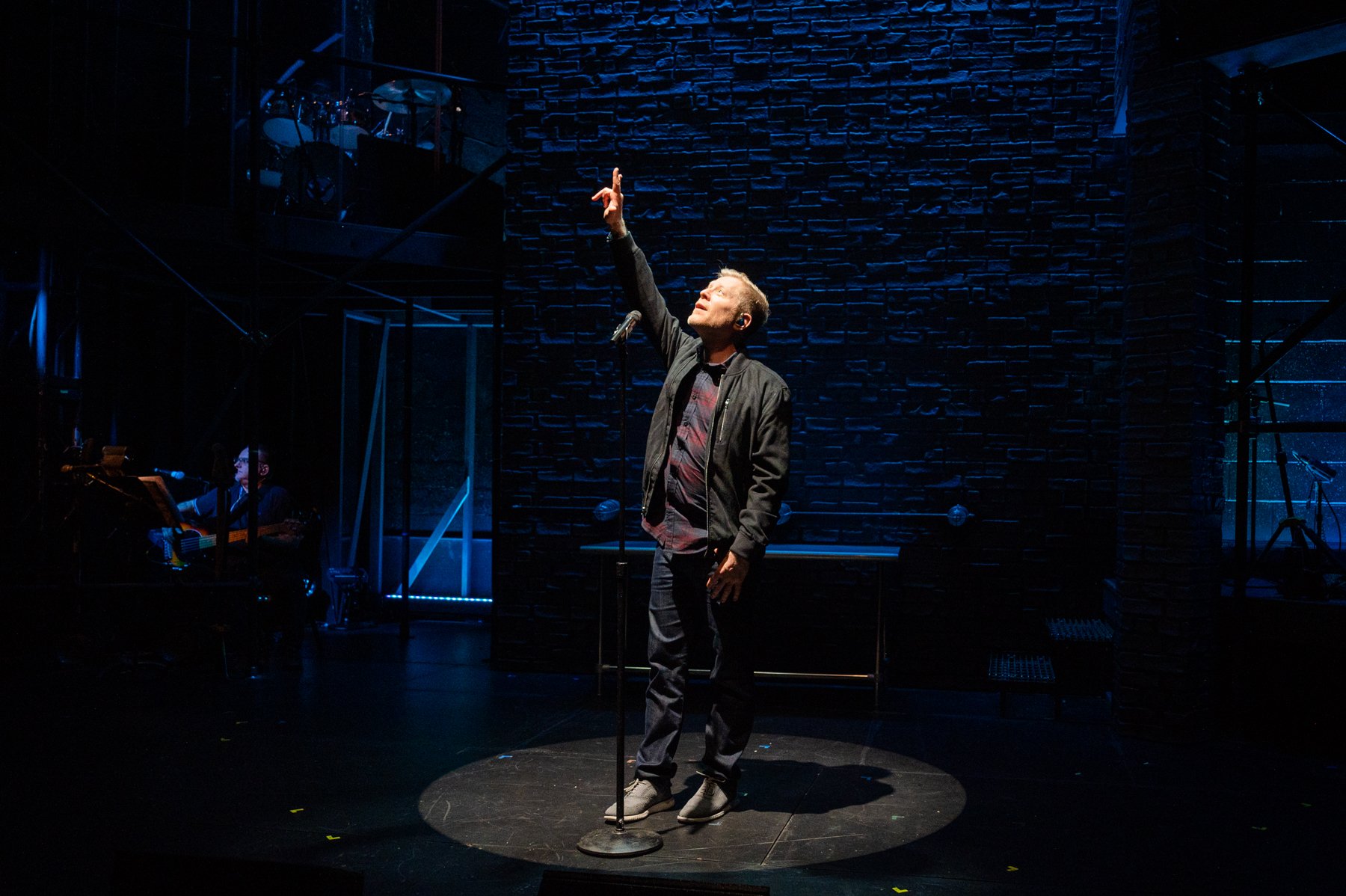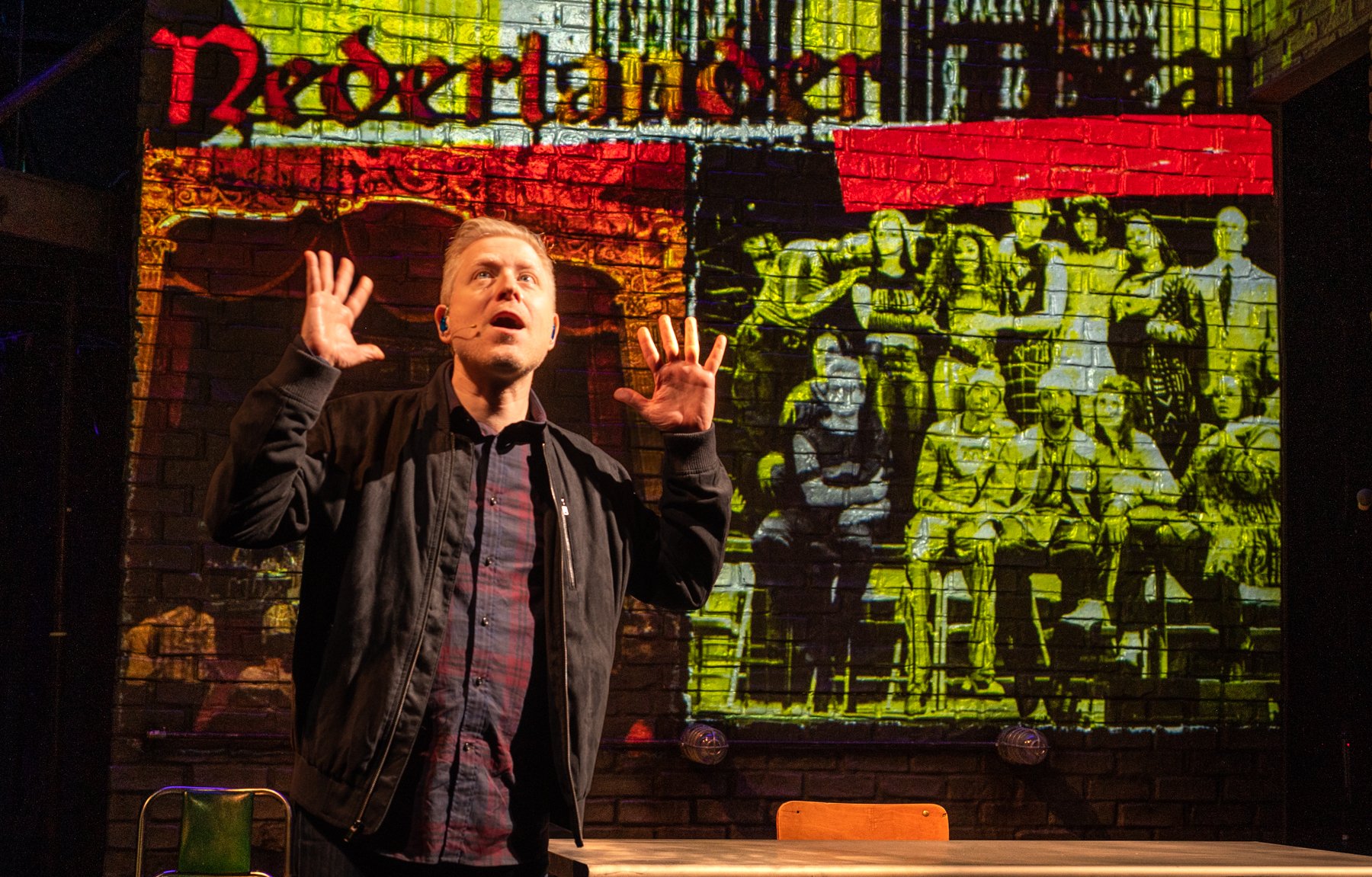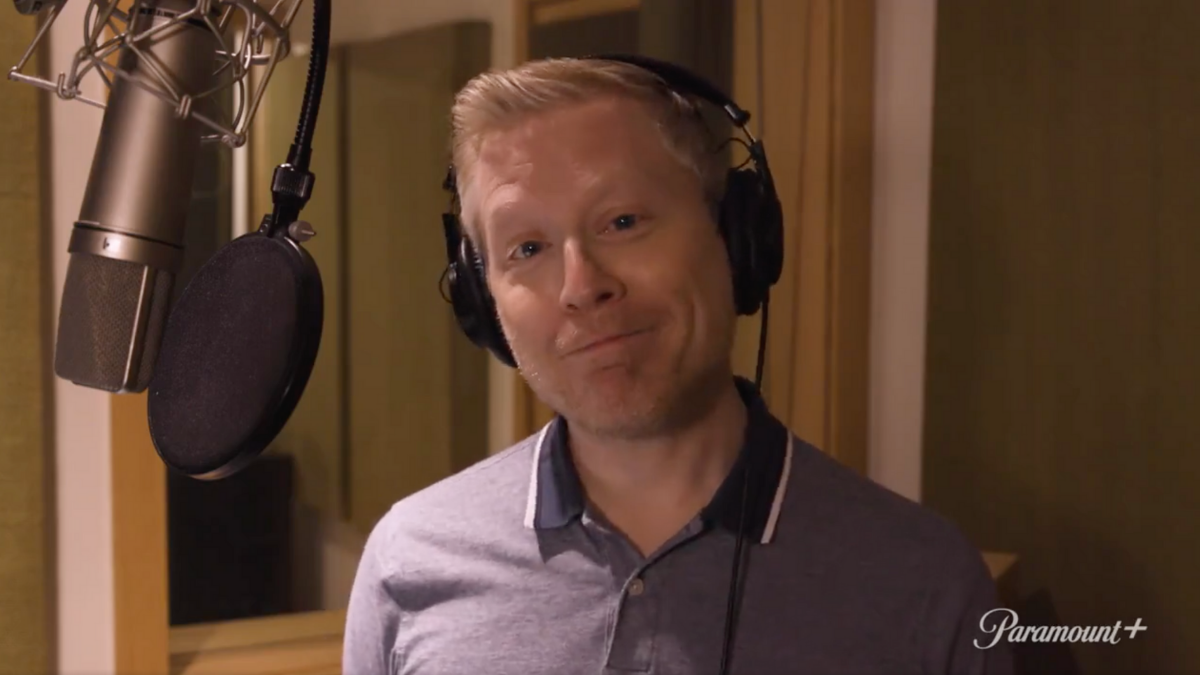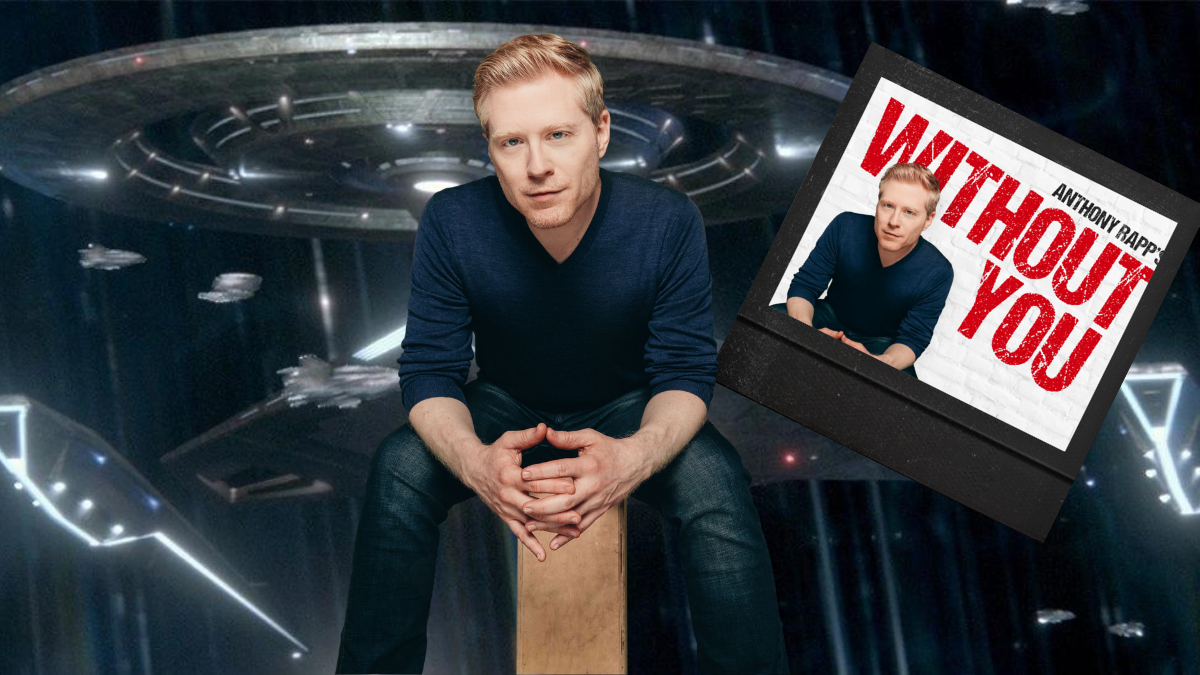REVIEW: Anthony Rapp's Marvellous Musical Memoir Tells a Touching and Tragic True Tale Without Getting Too Maudlin

Anthony Rapp in WITHOUT YOU. Image: Courtesy of New World Stages.
JANUARY 30, 2023 - Anthony Rapp is best known at the moment for his role on Star Trek: Discovery as Paul Stamets, the titular vessel’s astromycologist. Rapp plays a very different character in his one-man musical Without You, that of himself. A few weeks ago I rapped with Rapp about the show, and last night I got to see it with my own eyes.
Without You was adapted by Rapp from his memoir of the same name, detailing experiences that took place early in his career. As you may know, Rapp got his big break when he was cast in Rent, the Broadway musical that redefined how such shows were written. The night before the show’s off-Broadway run opened, its writer, Jonathan Larson, died unexpectedly. During its Broadway run, Rapp’s mother passed away as well, and Without You tells the story of those losses through Rapp’s eyes as he experiences stardom for the first time.
Anthony Rapp in WITHOUT YOU. Image: Courtesy of New World Stages.
The story of Larson’s death is a familiar one to those who know their theater history, and it’s interesting to hear it told by someone who was actually there. The tale of Rapp’s mother’s death is less well known, but no less affecting, and possibly more so; Rapp and his mom were close, and losing her was a painful blow.
The musical is rife with familiar tunes, including rock band R.E.M.’s “Losing My Religion” and many songs from Rent. A few original songs made it into the show, too, written and composed by Rapp and David Matos, and underscoring composed by Daniel A. Weiss plays throughout. Rent is a rock musical and none of the other music seems out of place next to it, which can happen when using material from different composers. Weiss was responsible for pulling together many of the arrangements, which likely helped maintain the continuity.
Rapp’s performance is outstanding. Not only does he play himself, but every other character in the show from his mother and Larson to other family members, producers, and the like. Every character had a distinct voice and bearing and it was never an issue trying to guess who the actor was portraying.
The direction, supplied by Stephen Maler, is likewise impeccable. Many times during conversations, Rapp would speak to the space where an imaginary character would be, then turn to face the audience as he responded in the other person’s voice. This had the effect of putting the audience in Rapp’s place and seeing the experiences through his eyes. It was quite effective and transformed us from mere spectators into Rapp’s scene partners.
Even though you knew it was coming, the moment Rapp’s mother died was heart-wrenching. When I spoke to him, Rapp told me he thinks of himself as having a conversation with his mom through his performance. Still, it’s hard to believe he’s not reliving the experience of his mother’s death, so affecting is his performance.
Anthony Rapp in WITHOUT YOU, with Clérida Eltimé on cello and Lee Moretti on guitar. Image: Courtesy of New World Stages.
Not only was Daniel A. Weiss responsible for the orchestrations, but he was the Musical Director, as well. With Weiss on the keyboard, scattered about the stage were Clérida Eltimé on cello, Paul Gil on bass, Jerry Marotta on drums, and Lee Moretti on guitar. The musical direction and band were excellent, keeping things mellow when the musical moment called for it and kicking into high gear when they could.
I have seen shows where the sound mix is just wrong, with the actor’s voice becoming overpowered by the band during the loud moments and the sound of the instruments fading to almost nothing for the quiet ones. Not so in Without You. The show was mixed to perfection and Brian Ronan’s sound design supported it without becoming a distraction.
The Scenic Design, by Eric Southern, consisted of three brick walls, with the band positioned on platforms on opposite sides of the stage, and included a few generic chairs and a 6-foot-long table, which Rapp moved around the stage as needed. The brick walls, painted a drab color, were enhanced beautifully by the lighting, also designed by Southern. They also acted as a screen for the wonderful projections.
Anthony Rapp with David Bengali’s projections. Image: Courtesy of New World Stages.
And those projections, designed by David Bengali, were marvelous. Whether we were being shown an apartment building, Broadway show posters, a hospital room, or Rapp’s photos of Rent rehearsals, there was usually something behind the actor that helped support the story he was telling. At one point, when he was singing about “Wild Bill,” a gorgeous western sunset projection appeared, complete with cacti. And then I laughed out loud as, mid-song, a tumbleweed nearly as large as Rapp himself suddenly rolled across the projected plain.
The costumes were pretty basic, simply jeans, a jacket, and a shirt, but that’s not a bad thing. The show doesn’t call for elaborate period costumes, and Costume Designer Angela Vesco delivered comfortable modern-day apparel.
What I’m getting at here is that the directors and designers created a sense of continuity for the show. All of the design elements helped support the story without becoming a distraction, allowing Rapp’s script and performance to shine through and do the heavy lifting.
Anthony Rapp in WITHOUT YOU, supported by Eric Southern’s scenery and lighting, David Begali’s projections, and Angela Vesco’s costume. Image: Courtesy of New World Stages.
The Stage Manager doesn’t usually get mentioned in reviews, for a couple of reasons. First, not many people outside of the theater know what exactly a Stage Manager does. If you want the details of an SM’s varied duties, Google “what does a Stage Manager do” and you’ll find a myriad of web pages and blogs that will clear up the mystery for you. The other reason SMs don’t often find themselves reviewed is the same reason there’s no Stage Management Tony Award: if an SM is doing their job right, you don’t realize they're doing their job at all. It’s bad Stage Management that can be seen by the audience. So, judging by what I saw during the show’s 90-minute run time, I’d say Production Stage Manager Denise Savas did a great job of keeping the show on track.
In my opinion, the Standing Ovation is overused these days. At one time, audiences granted a Standing O only to an exceptional production, which had earned the honor. Modern audiences are too willing to rise to their feet for a humdrum production, often simply because it’s over. Without You earned its Standing Ovation. It’s a tour de force for Rapp, tackling the tough subject of loss without getting too maudlin. But theater is a team sport and without the input and talent of its directors, designers, musicians, Stage Managers, and crew, it would not have been as effective or affecting. Score one for the home team.
Anthony Rapp’s Without You is playing off-Broadway at New World Stages through April 30, with a possible (brief) extension. You can order tickets here and if you’re going to be in or near New York City during the next few months, I sincerely recommend that you do.
T is the Managing Editor for Daily Star Trek News and a contributing writer for Sherlock Holmes Magazine and a Shakespeare nerd. He may have been the last professional Stage Manager to work with Leonard Nimoy, has worked Off-Broadway and regionally, and is the union Stage Manager for Legacy Theatre, where he is currently working with Julie Andrews. after which he’ll be working on Richard III at Elm Shakespeare Company.









